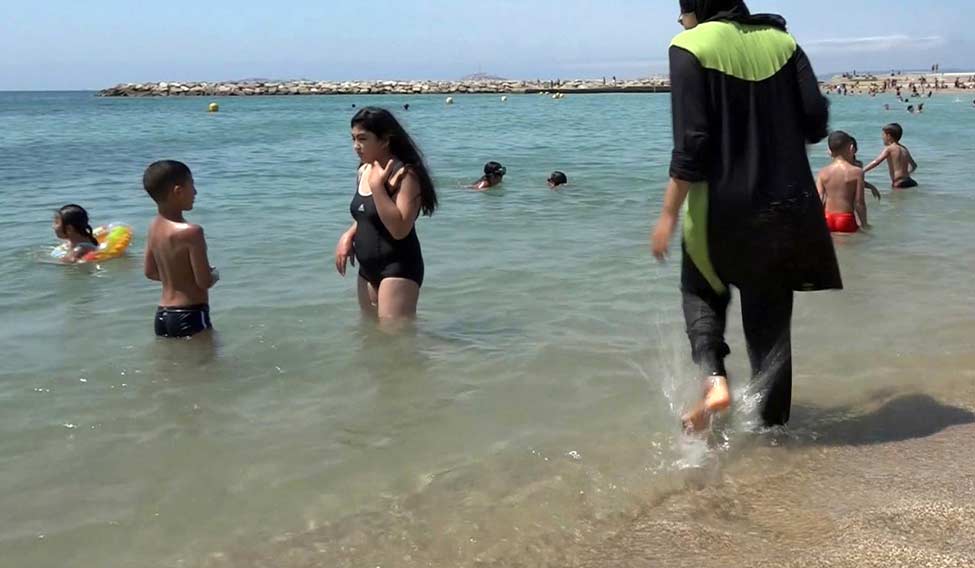It is a situation that would worry our Indian grandmothers. As women in India seek to free themselves from the society-imposed rules of what is 'decent' and 'modest' in clothing, elsewhere in the world, women are being fined for hiding too much skin at beaches.
About 26 towns in France, including Nice and Cannes, have banned the burkini, a fully-covering garment with an attached head scarf that women wear to the beach. The government has cracked down on women who wear these garments, saying that it does not reflect “good morals and secularism”. The French minister for women's rights, Laurance Rossingol, went further and said that wearing a burkini was a form of oppression on women's bodies, an attempt to “hide women's bodies in order to control them”.
While the debate has been going on for weeks, it was aggravated after a photo of police asking a woman to remove her head-covering scarf on a beach went viral. Those who oppose the ban say that the French government is targeting the Muslim population and trampling over a woman's right to dress the way she wants to. Previously, France had banned the veil (or niqab) and burkha in 2011 and prohibited Sikhs from wearing turbans to academic institutions in 2014.
It's not the first time that a country's government tries to decide how its people are supposed to dress. Around the world, certain kinds of clothing have been banned or imposed on women, citing religious modesty or secularism.
Europe: Bikini, heels and burkhas
Greece banned women from wearing stilettos, especially on archaeological sites, in 2009, following fears that heels would destroy monuments. In Spain, the bikini was officially banned in 2011. Along with France, Belgium banned the veil in 2011, Switzerland in 2013, the Netherlands and Italy in 2015.
Russia, Kazakhstan and Belarus: Lacy underwear
In 2015, women protested against a ban on synthetic lacy underwear. The government officials claimed that their idea was to promote better vaginal health by encouraging women to wear “breathable, comfortable cotton” materials. Since then, there has, reportedly, been a ban on production, import and sale of synthetic, lace underwear.
Africa: Trousers, miniskirts and veils
Uganda is famous for its ban on miniskirts and any clothing that exposes breasts or thighs, right after it passed an anti-pornography bill in 2014. The bill claims that it is illegal to “dress indecently”. In Sudan, a woman could be arrested for wearing trousers, and could be flogged publicly for not fully covering their hair. Chad, Egypt and parts of Cameroon and Niger ban face-covering veils in public.
Gulf nations: Leggings and shorts
In the tourist hub of Dubai, sign boards in malls warn that women must wear clothes that “cover up knees”. Several women were caught by police for wearing the bikini at a beach, following which toplessness and bikinis were banned in public spaces. In Saudi Arabia, women, irrespective of their religion, are mandated to wear a burkha and head scarf in such a way that no skin in visible. Qatar banned leggings in public spaces.
South East Asia: veils, trousers, men with long hair
In Karamay, China, a 2014 order banned any clothing that was “too Muslim”. Women wearing a hijab, niqab, veil, or burkha could be arrested by police. While not an official law in North Korea, women are, reportedly, not allowed to wear trousers and men are not supposed to grow their hair long.
Canada: Turbans and religious symbols
Canada's Quebec Soccer Federation received flak from the Sikh community when it banned players from wearing turbans in 2013. They later repealed it, while the government of Quebec also decided not to go ahead with a ban on religious clothing and symbols in the public space.







